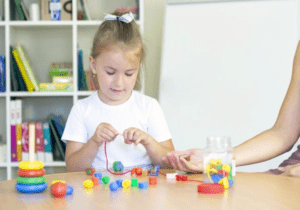When Anger Visits: A Parent’s Guide to Calming Big Emotions
This article has been researched and written by Hacer Subasi. AI has not been used in producing this article.
Anger is a natural and necessary emotion—but for children, it can feel overwhelming and hard to express. This short guide is written for you, dear parents, with simple language and playful strategies you can read with your child or to your child. The goal is to help them recognise their emotions, feel understood, and discover safe and creative ways to express what’s going on inside.
Did you know? Sometimes, out of nowhere, a big feeling might come and knock on the door of your heart. One of those big feelings could be anger. And guess what? That is okay. If there are people around you who ignore you, move away from you, or even punish you when you are angry, maybe you can gently let them know that ‘anger is a natural emotion’. It is something all of us feel sometimes.
The first thing to remember is: It is totally okay to feel angry. There’s nothing wrong with it—it is just your heart’s way of saying something important.
The second thing is this: When anger knocks on your heart’s door, you can be kind and invite it in. That is very caring and welcoming thing to do. Otherwise, you might feel so mad your face gets hot, your fists clench, or your tummy feels funny. But what matters is what you do with that anger. Here are some fun and helpful ways to calm down when you feel like a volcano ready to erupt!
1. Cookie Breathing (Inspired by Liana Lowenstein)
Imagine you’re holding your favourite warm, yummy cookie. First, take a deep breath in to smell the cookie (sniff in through your nose)… now blow on it to cool it down (slowly blow out through your mouth). Try it three times. Doesn’t that feel nice?
2. Draw It Out
Grab your crayons or markers and draw what your anger feels like. Maybe it’s a red tornado or a spiky ball! Putting your feelings on paper helps them come out safely.
3. Chill-Out Spot
Create your own “calm-down corner” with soft pillows, toys, or a fidget toy. When you’re angry, you can go there to feel safe and cool off.
4. Use Your Words
Try saying, “I feel angry because…” or “I don’t like when…” Talking about your feelings helps grownups understand you better.
5. Try a Feelings Thermometer
Think of your feelings like a thermometer. Are you just a little warm (a bit annoyed)? Or boiling hot (super angry)? Noticing your feelings helps you stop before you explode!
6. Be Like a Turtle
When you feel super mad, pull back like a turtle! Close your eyes, take a deep breath, and wait before you act. Then, come out slowly when you feel calmer.
7. Ask for a Hug
Sometimes, just a hug from someone who loves you can make the angry feeling melt away—like ice cream in the sun.
Whether you’re looking for a bedtime conversation starter or a tool during tough moments, these gentle tips will guide you
and your little one toward calmer, more connected experiences.
Health Effects of Untreated Depression
It’s very common to feel sadness at one point or another in our life. Depending on your specific circumstances, you may even feel …
Psychologists vs. Psychiatrists – What’s the Difference?
Clients shouldn’t have to jump through hoops to understand who the perfect candidate is for treating their emotional and/or behavioral struggles. Yet, understanding the type of provider you should see during …
Gentle Parenting: What is it and How to Try it Yourself
When it comes to raising children, no one has all the answers. Every parent and child have unique challenges and needs. Navigating these individual circumstances along with ever-changing environments, such as school …
How to Improve Your Relationship with Your Children – A Psychologist’s Guide
The modern family’s lifestyle leaves us shuffling from school to sports practice, family events, visiting friends, and everything in between. As society evolves to become more on-the-go and technologically advanced, w…
Tips for Communicating With Someone Who is Depressed
Knowing what to say to someone who is struggling with depression can be challenging. Perhaps you are afraid you might say the wrong thing. Or maybe you will say something that makes their day even worse? Maybe you fee…
Who Can Benefit From Couple Counseling?
Relationships are far from perfect. Each person brings his or her own ideas, values, opinions, and personal history into a relationship, and they don’t always match their partner’s. Those differences don’t necessaril…
What is EMDR Therapy and How Does it Help People?
Since the days of Freud, we’ve come to expect that managing our trauma is a lifelong journey. However, this is not the case. Eye Movement Desensitization and Reprocessing therapy (EMDR therapy) was developed in 1990 …
Everything You Need to Know About Couples Therapy
It’s perfectly expected for couples in relationships to face challenges from time to time. Every relationship has its unique needs and challenges. Couples see therapy for a number of unique reasons. From miscommunicat…
Does Social Media Cause Depression?
According to recent estimates, roughly 4 billion people worldwide use various social media platforms, including Facebook, Twitter, Instagram, and LinkedIn. It’s not hard to believe. When you take a look around a crowd…
Child Development: Play Therapy in Dubai
Every child deserves to feel safe, empowered, understood, connected, and loved. Play therapy is based on the foundation of providing a safe environment for children to process their emotions and develop the social, em…











